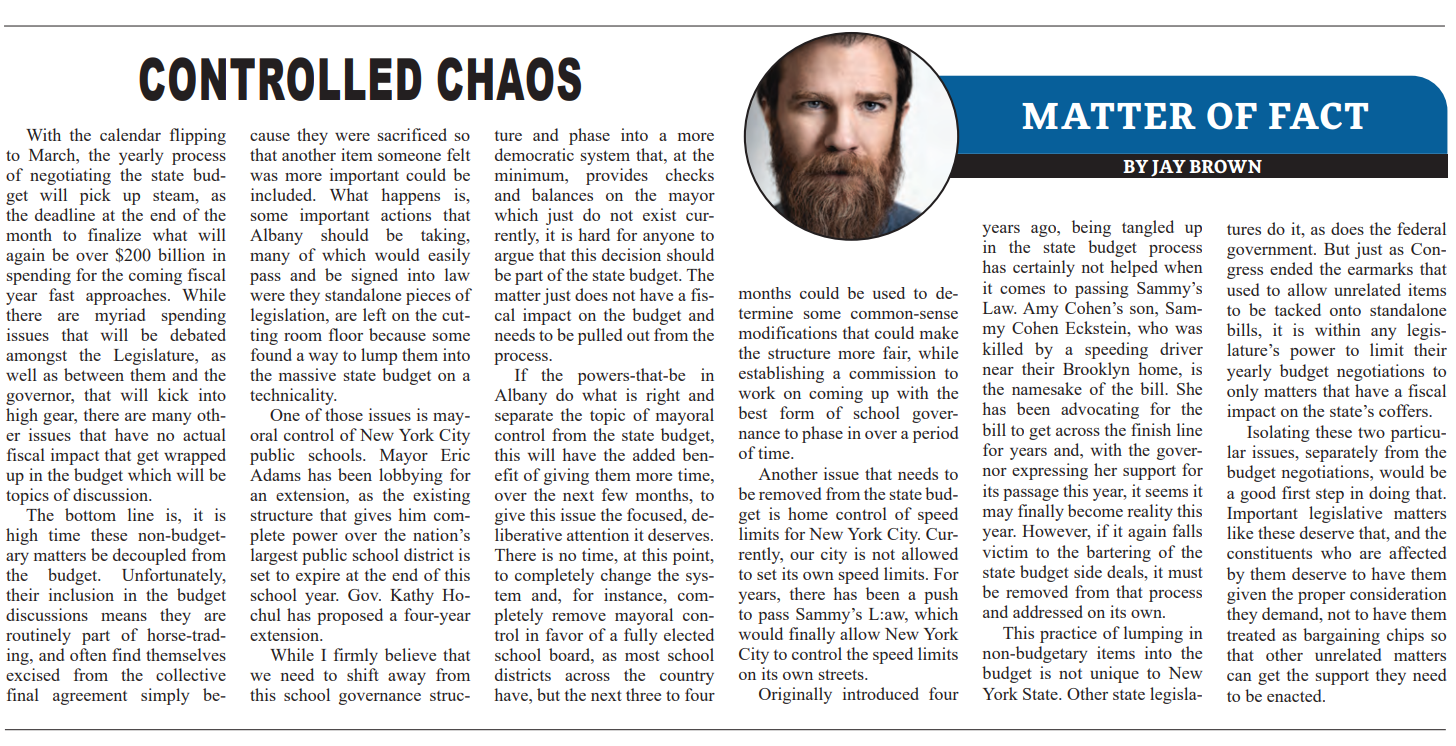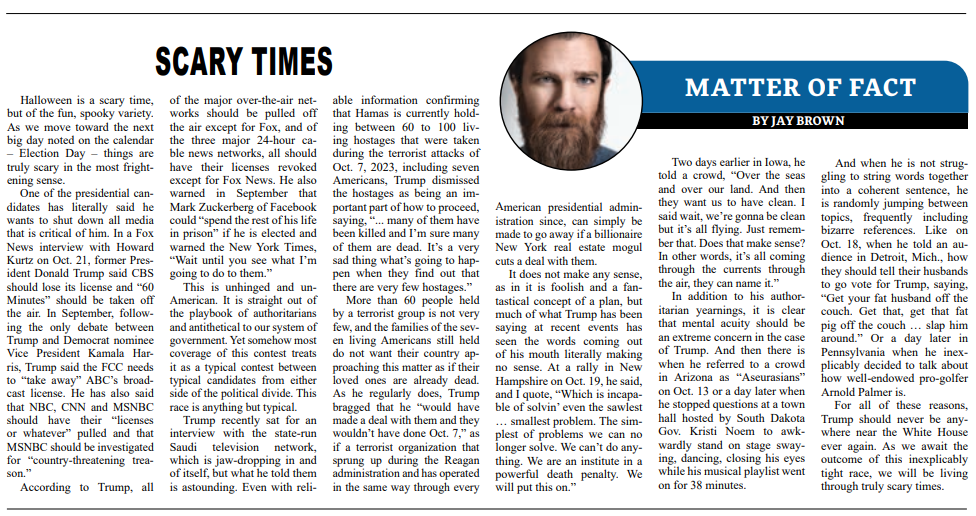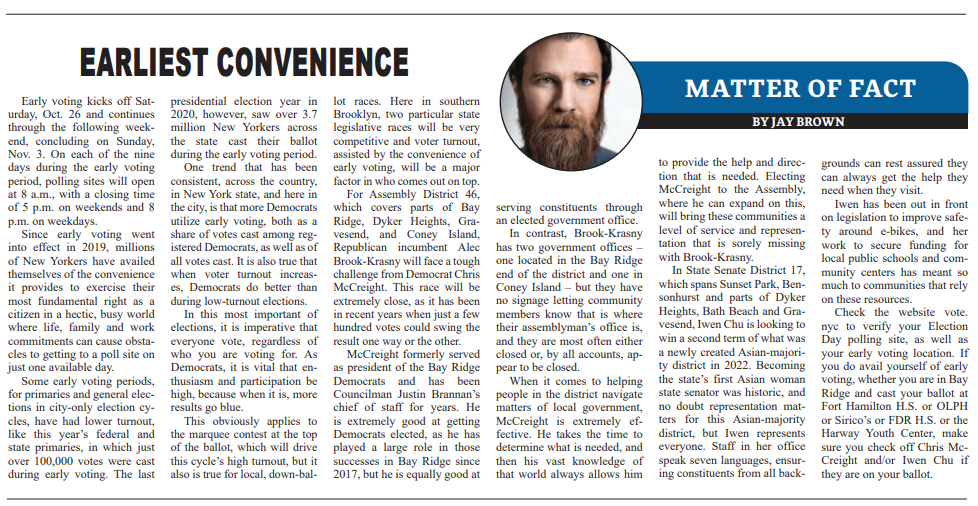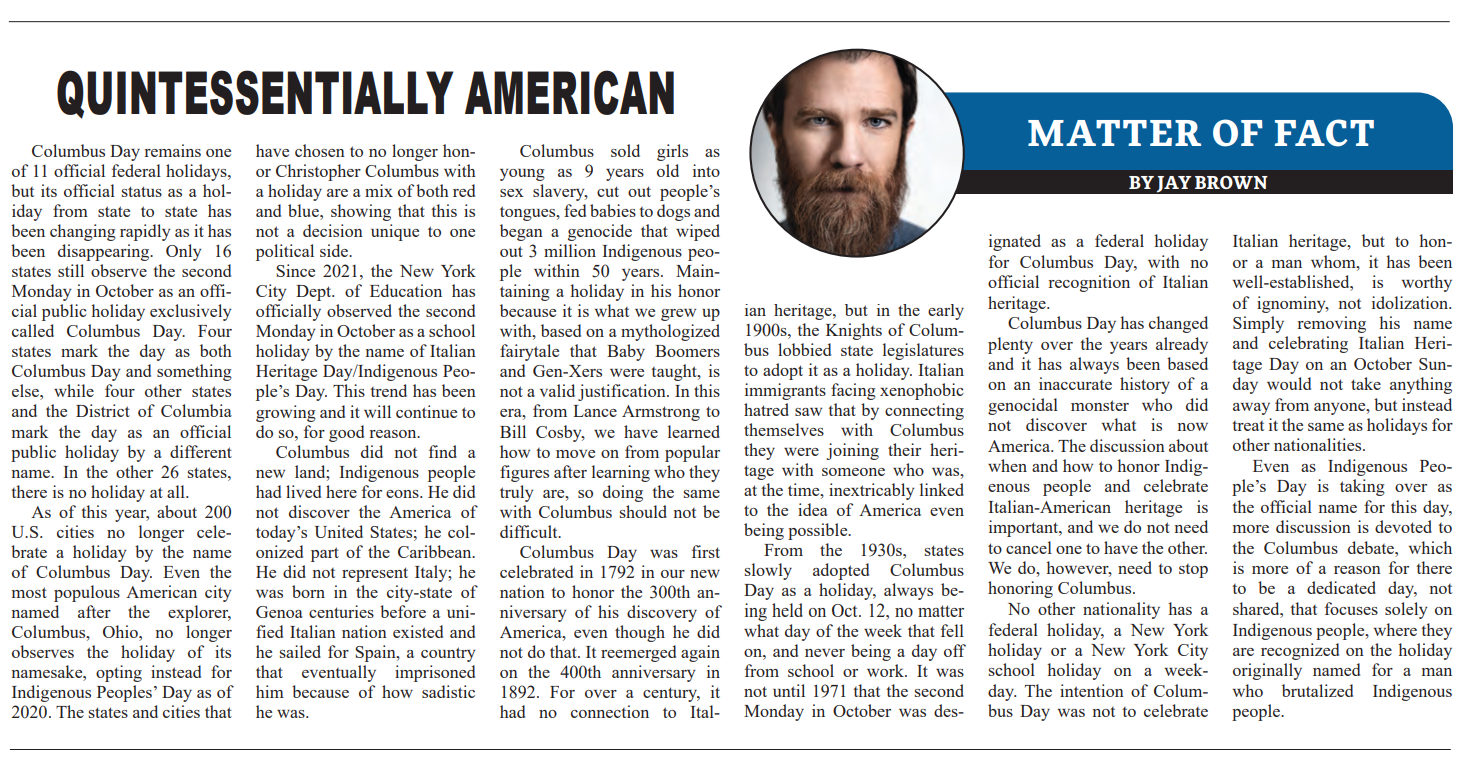This column, from the weekly opinion piece MATTER OF FACT, first appeared on BrooklynReporter.com, the Home Reporter and Spectator dated March 1, 2024
With the calendar flipping to March, the yearly process of negotiating the state budget will pick up steam, as the deadline at the end of the month to finalize what will again be over $200 billion in spending for the coming fiscal year fast approaches. While there are myriad spending issues that will be debated amongst the legislature, as well as between them and the governor, that will kick into high gear, there are many other issues that have no actual fiscal impact that get wrapped up in the budget which will be topics of discussion.
The bottom line is, it is high time these non-budgetary matters be decoupled from the budget. Unfortunately, their inclusion in the budget discussions means they are routinely part of horse-trading, and often find themselves excised from the collective final agreement simply because they were sacrificed so that another item someone felt was more important could be included. What happens is, some important actions that Albany should be taking, many of which would easily pass and be signed into law were they standalone pieces of legislation, are left on the cutting room floor because some found a way to lump them into the massive state budget on a technicality.
One of those issues is mayoral control of New York City public schools. Mayor Adams has been lobbying for an extension, as the existing structure that gives him complete power over the nation’s largest public school district is set to expire at the end of this school year. Governor Hochul has proposed a four-year extension.
While I firmly believe that we need to shift away from this school governance structure and phase into a more democratic system that, at the minimum, provides checks and balances on the mayor which just do not exist currently, it is hard for anyone to argue that this decision should be part of the state budget. The matter just does not have a fiscal impact on the budget and needs to be pulled out from the process.
If the powers-that-be in Albany do what is right and separate the topic of mayoral control from the state budget, this will have the added benefit of giving them more time, over the next few months, to give this issue the focused, deliberative attention it deserves. There is no time, at this point, to completely change the system and, for instance, completely remove mayoral control in favor of a fully elected school board, as most school districts across the country have, but the next three to four months could be used to determine some common-sense modifications that could make the structure more fair, while establishing a commission to work on coming up with the best form of school governance to phase in over a period of time.
Another issue that needs to be removed from the state budget is home control of speed limits for New York City. Currently, our city is not allowed to set its own speed limits. For years, there has been a push to pass Sammy’s Law, which would finally allow New York City to control the speed limits on its own streets.
Originally introduced four years ago, being tangled up in the state budget process has certainly not helped when it comes to Sammy’s Law passage. Amy Cohen’s son, Sammy Cohen Eckstein, who was killed by a speeding driver near their Brooklyn home, is the namesake of the bill. She has been advocating for the bill to get across the finish line for years and, with the governor expressing her support for its passage this year, it seems it may finally become reality this year. However, if it again falls victim to the bartering of the state budget side deals, it must be removed from that process and addressed on its own.
This practice of lumping non-budgetary items into the budget is not unique to New York State. Other state legislatures do it, as does the federal government. But just as Congress ended the earmarks that used to allow unrelated items to be tacked onto standalone bills, it is within any legislature’s power to limit their yearly budget negotiations to only matters that have a fiscal impact on the state’s coffers.
Isolating these two particular issues, separately from the budget negotiations, would be a good first step in doing that. Important legislative matters like these deserve that, and the constituents who are affected by them deserve to have them given the proper consideration they demand, not to have them treated as bargaining chips so that other unrelated matters can get the support they need to be enacted.




